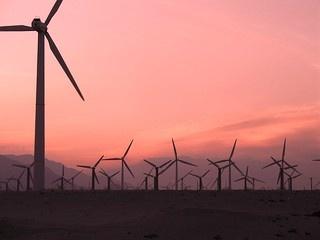The African Development Bank (AfDB) has approved a loan of US$800mn to spur private investment in Moroccos growing wind and solar markets
A statement from AfDB said that the bank’s financial support was directed at helping Morocco realise its ambitious concentrated solar power (CSP) project and its integrated wind/hydro and rural electrification programme.
The aid is expected to help the country achieve its goal of increasing installed renewable energy capacity to 42 per cent by 2020, added the statement.
Director of the AfDB energy, environment and climate change department, Hela Cheikhrouhou, said, “Morocco has emerged as a leader in developing low carbon, sustainable energy on a large scale, and we are proud to support the country’s drive.”
AfDB approved a loan for €168mn (US$215mn) in May 2012 and a concessionary loan for US$100mn from the Clean Technology Fund (CTF) to finance the first phase of the CSP plant at Ouarzazate which aims to generate 120MW to 160MW in its first phase and 500MW at full capacity.
Again in June 2012, the bank made its largest project approval for 2012 with a loan of €359mn (US$459mn) from its own resources and US$125mn from the CTF for Morocco’s integrated wind/hydro and rural electrification programme which aims to increase national wind power capacity by 1,070MW and expand rural electrification to 79,436 households in 24 of Morocco's most isolated districts.
Cheikhrouhou added, “CTF, which has a significant component that is grant-like, brings the economics and financial viability of projects closer to reality so that implementation is feasible and government subsidies are less needed.
“Green growth is about finding the pathway where you achieve your ambitions in terms of social and economic development not only to be a global agent, but also to leave something behind for future generations that will be able to produce jobs and resist climatic risks and disasters.”





















